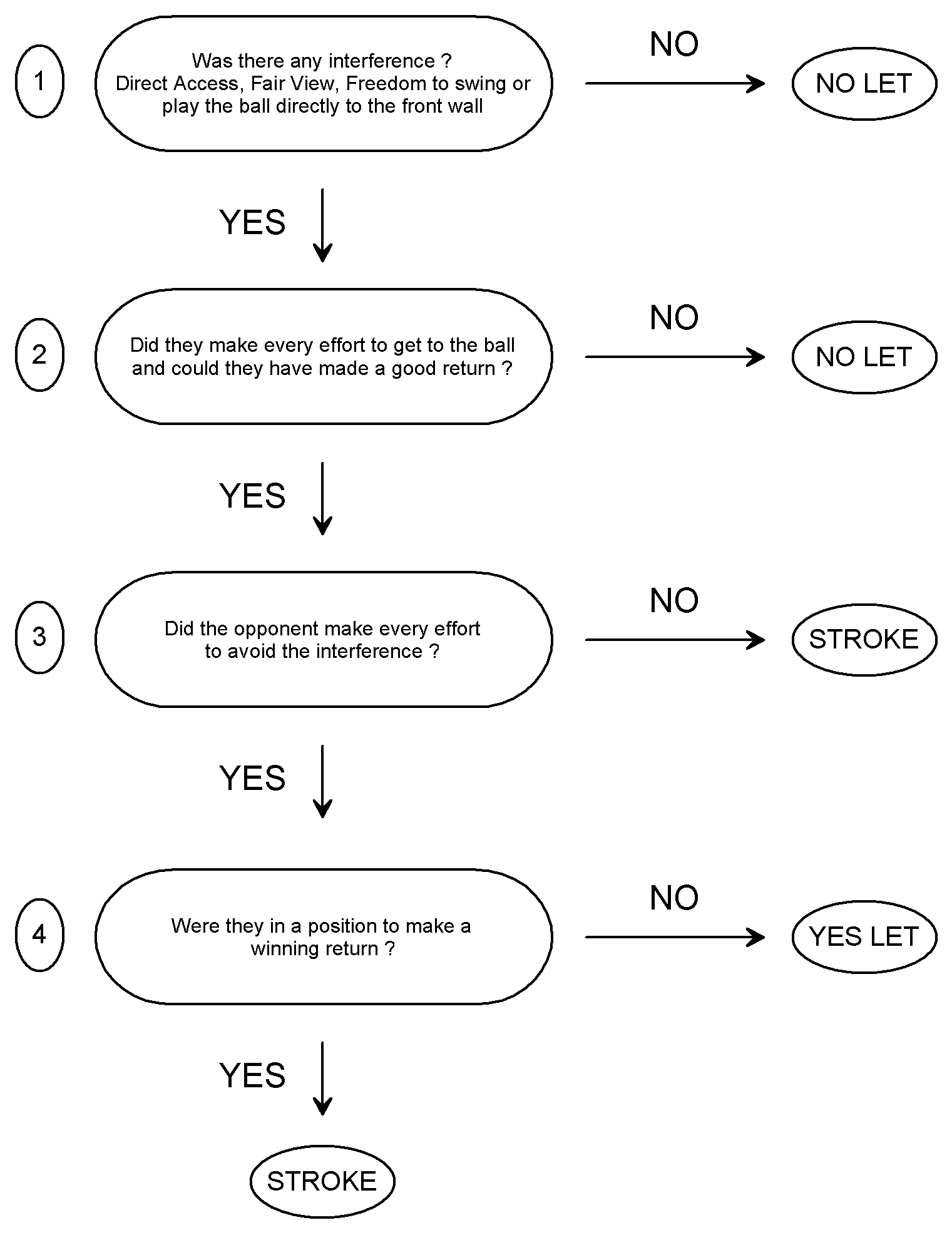THE INTERFERENCE LINE OF THINKING
Refereeing is a thankless but necessary task.
Knowing the Rules and using the correct calls is expected of referees,
but the really difficult part is making decisions when one of the
players appeals for a let.
Below is a summary of the thought process a referee should go through
when asked 'Let Please'
|
The Question …
|
The Answer …
|
|
1. Did interference occur ?

|
The striker has four basic rights,
and interference has occurred if the opponent fails to provide him with any
of these,
even if he has made every effort to do so:
Unobstructed direct access
to the ball after completion of a reasonable follow-through
A fair view
of the ball on its rebound from the front wall
Freedom to hit
the ball with a reasonable swing
Freedom to play
the ball directly to the front wall
If no interference has occurred, or the interference was so
minimal that the player's view of and freedom to get to
and play the ball were not effected, then it's NO
LET, otherwise move on to no.2
|
|
2.
Could the obstructed player have reached the ball and made a good return ?
And was he making every effort to do so ?
|
If either answer is NO, then it's NO LET,
otherwise move on to no.3
|
|
3.
Did the obstructed player move past the point of interference and play on ?
Or create the interference in moving to the ball ?
|
If the answer to either question is YES,
then it's NO LET,
otherwise move on to no.4
|
|
4.
Did the obstructing player make every effort avoid the interference ?
|
If he didn't,
then it's a STROKE,
otherwise move on to no.5
|
|
5.
Did the interference prevent the player's reasonable swing ?
|
If YES,
then it's a STROKE to the player,
otherwise move on to no.6
|
|
6.
Would the obstructed player have struck the opponent with the ball going
directly to the front wall,
or play a winning return even if going via a side wall ?
|
If either answer is YES,
then it's a STROKE
|
|
7.
Otherwise it's just a LET.
|
|
NOTES
a) In question 6,
the idea of 'play a winning return' is there to change what would
otherwise be a let,
into a stroke -
eg. if the interference happens right up at the front wall
(eg. from a drop shot)
and the obstructing player is so out of position
that a decent drive would obviously be a winning shot.
b) In question 6,
the logic of the 'play a winning return' becoming a stroke,
can not be used in reverse.
If a player tries to argue against the decision of a stroke,
stating that the other player could not have played a winning
return and so therefore it's not a stroke,
that is not a valid argument / application of question 6.
c) The decision should be made with reference to the circumstances
at the time when the let is being asked for.
In particular -
if a player asks too early for a let,
before making an effort to get to the ball,
then the decision should be no let.
However -
if there is interference,
but the ball goes to the back wall and dies,
such that even if the player could move to the ball but it would
not have been playable,
then the decision should be no let.
Remember that this is a simplification —
the over-riding principle of the rules is to ensure a fair result for
both players.
